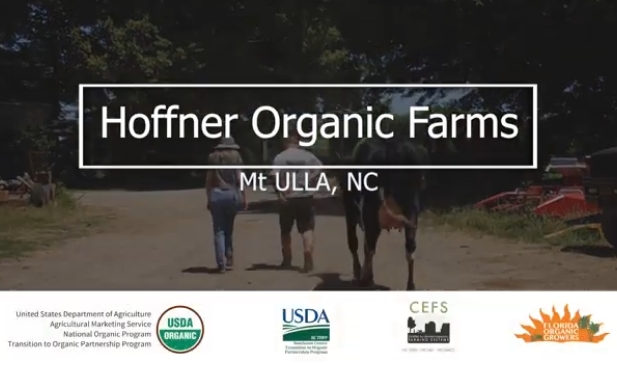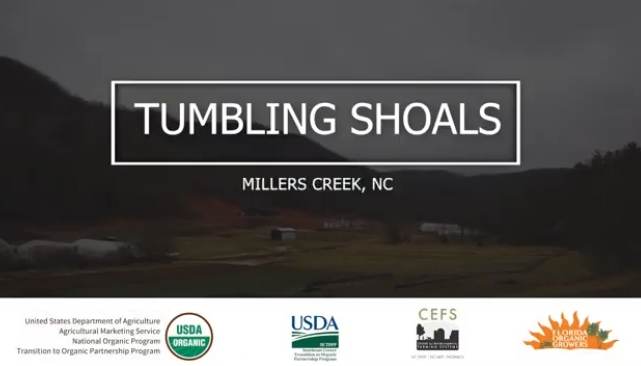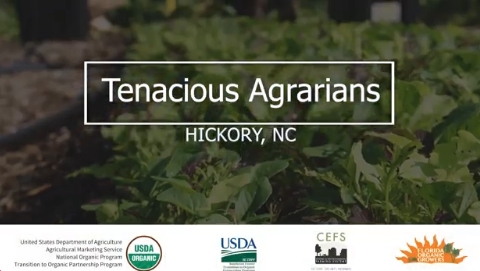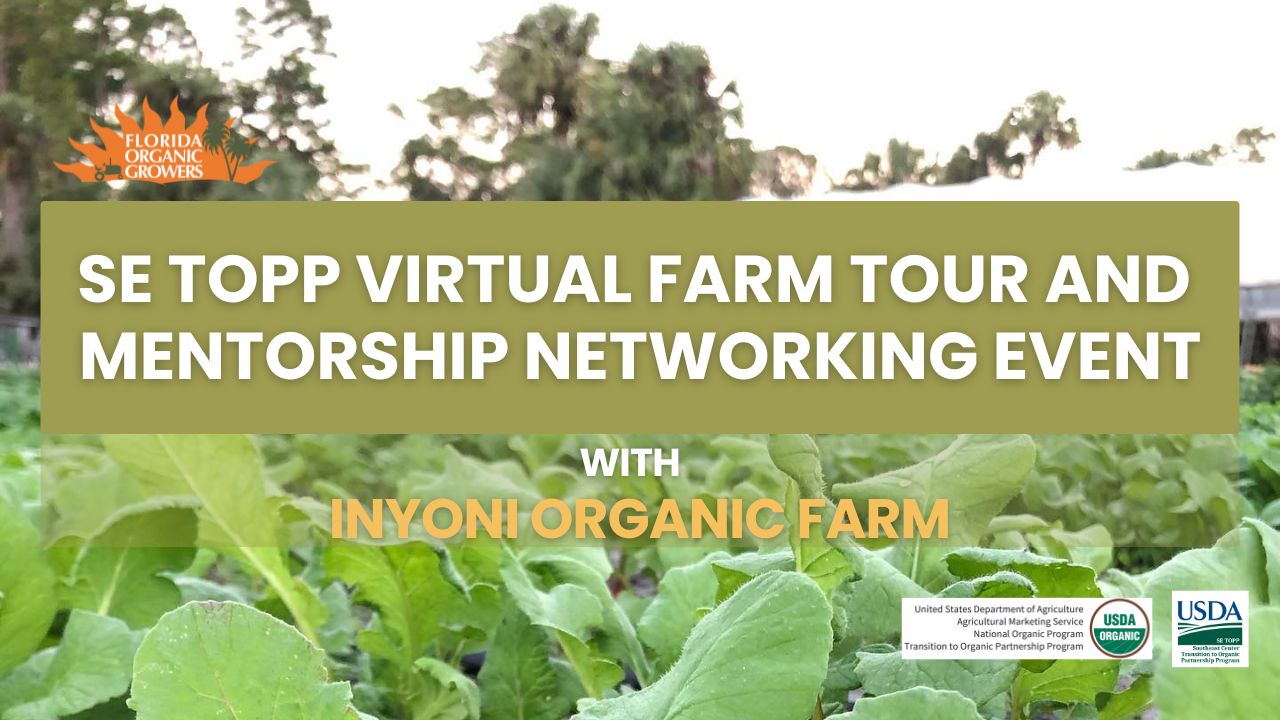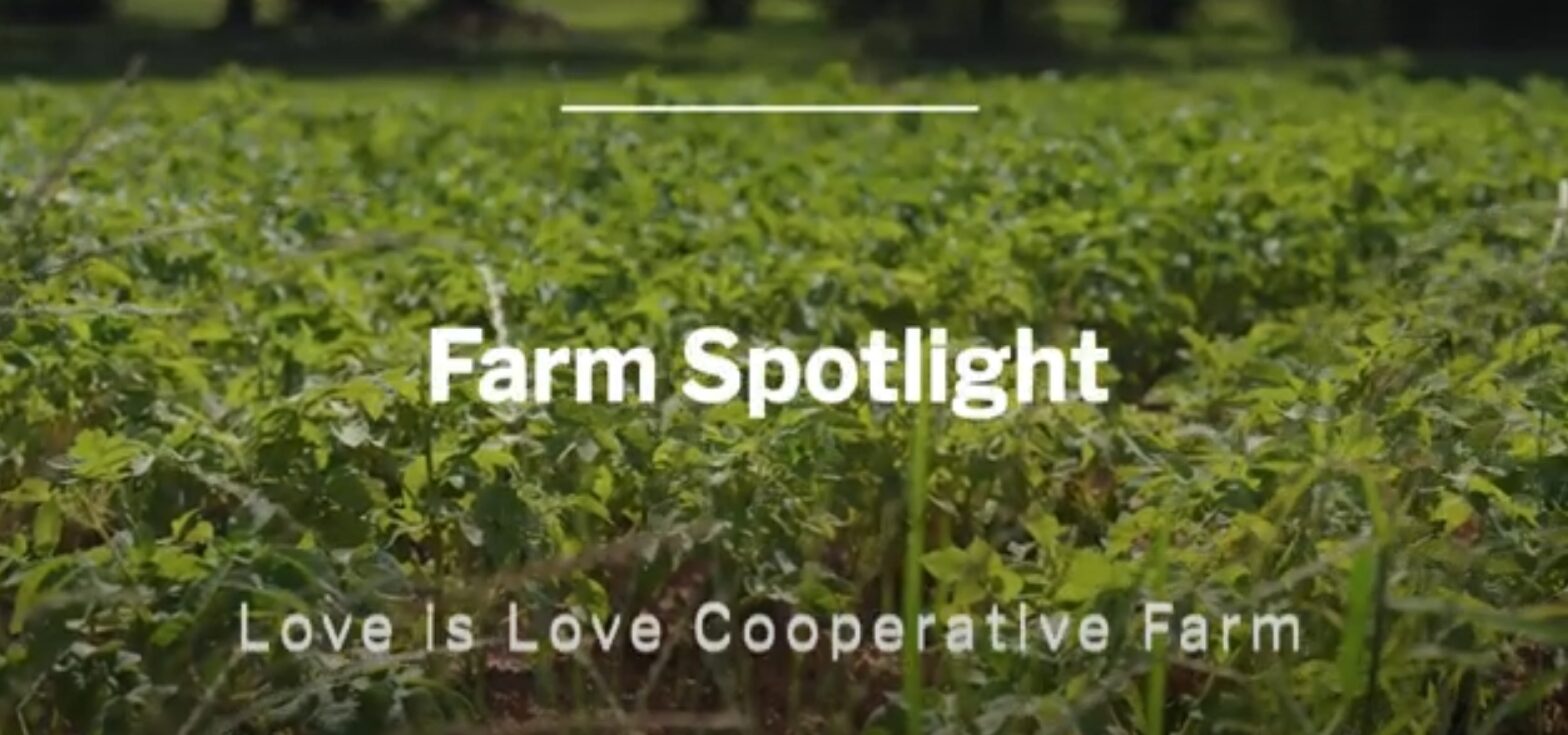In this video, Chris Hoffner of Hoffner Organic Dairy in Mount Olive, North Carolina, shares his multigenerational family farm’s journey toward organic certification. Established in 1956, Hoffner Organic Dairy transitioned to organic production in 2007. Chris reflects on the challenges and rewards of organic dairy farming and discusses the importance of community learning and the… Continue reading Organic Transition Journey: Hoffner Organic Dairy
Resources Category: Organic Crop Production
Explore best practices in organic crop production. Get expert tips on soil management, crop rotation, and sustainable farming techniques to boost your organic yields.
Organic Transition Journey: Tumbling Shoals Farm
In this video, Shiloh Avery of Tumbling Shoals Farm in North Carolina discusses the evolution of her certified organic vegetable operation. She shares insights on farm expansion, soil health, crop rotation, disease prevention, the balance of administrative and field roles, and the critical role of mentorship. She also reflects on how fostering a supportive farm… Continue reading Organic Transition Journey: Tumbling Shoals Farm
Organic Transition Journey: Tenacious Agrarian Farm
In this video, Adam Smith of Tenacious Agrarian Farm in Hickory, North Carolina, shares his journey toward organic certification. Through his connection with SE TOPP mentor Shiloh Avery of Tumbling Shoals Farm, Adam highlights the value of mentorship in understanding certification paperwork, audit preparation, and the importance of choosing the right certifier for long-term success.
Commercial Availability Searches for Seeds and Stock
A 2-page overview of organic seed, seedling, and stock requirements, as well as how to perform and record Commercial Availability Searches when using non-organic seeds or stock.
Virtual Farm Tour – Inyoni Organic Farm
Nick Batty is founder and owner of Inyoni Organic Farm, a USDA certified organic farm located in Naples, Florida. The farm produces up to 50 different varieties of organically grown and harvested vegetables, herbs, flowers and fruit. Nick, drawing on over two decades of experience, shares insights on the farm’s operations, methods for production including… Continue reading Virtual Farm Tour – Inyoni Organic Farm
Farm Spotlight: Soil Tests and Fertilizing at Love is Love Cooperative Farm (Mansfield, GA)
Not all fertilizers are the same, and understanding the differences can significantly impact your crop yield. In this video, Demetrius Milling of Love is Love Cooperative Farm in Georgia, explains how fertilizer size affects distribution, the best methods for applying large granule and fine particle fertilizers, and why soil testing is essential before fertilizing. By… Continue reading Farm Spotlight: Soil Tests and Fertilizing at Love is Love Cooperative Farm (Mansfield, GA)
Organic Podcast Series
The podcast series consists of interviews and discussions on current organic issues. Podcasts are 100% developed by Cal Poly Students. They are released on a monthly basis.
Organic Resource Database
The UC OAI Organic Resource Database is a tool for you to connect with organizations or individuals in your region and across the state that offer a range of activities – from technical, financial and other forms of assistance to applied research for organic agriculture.
Transition to Organic: Alfalfa Production in Utah
Overview of transitioning alfalfa to organic in Utah.
Commercial Availability Searches (Seed Searches) Fact Sheet
2-page fact sheet providing an overview of commercial availability searches (seed searches) for seeds and planting stock. Info includes when a seed search is needed and how to record it.
